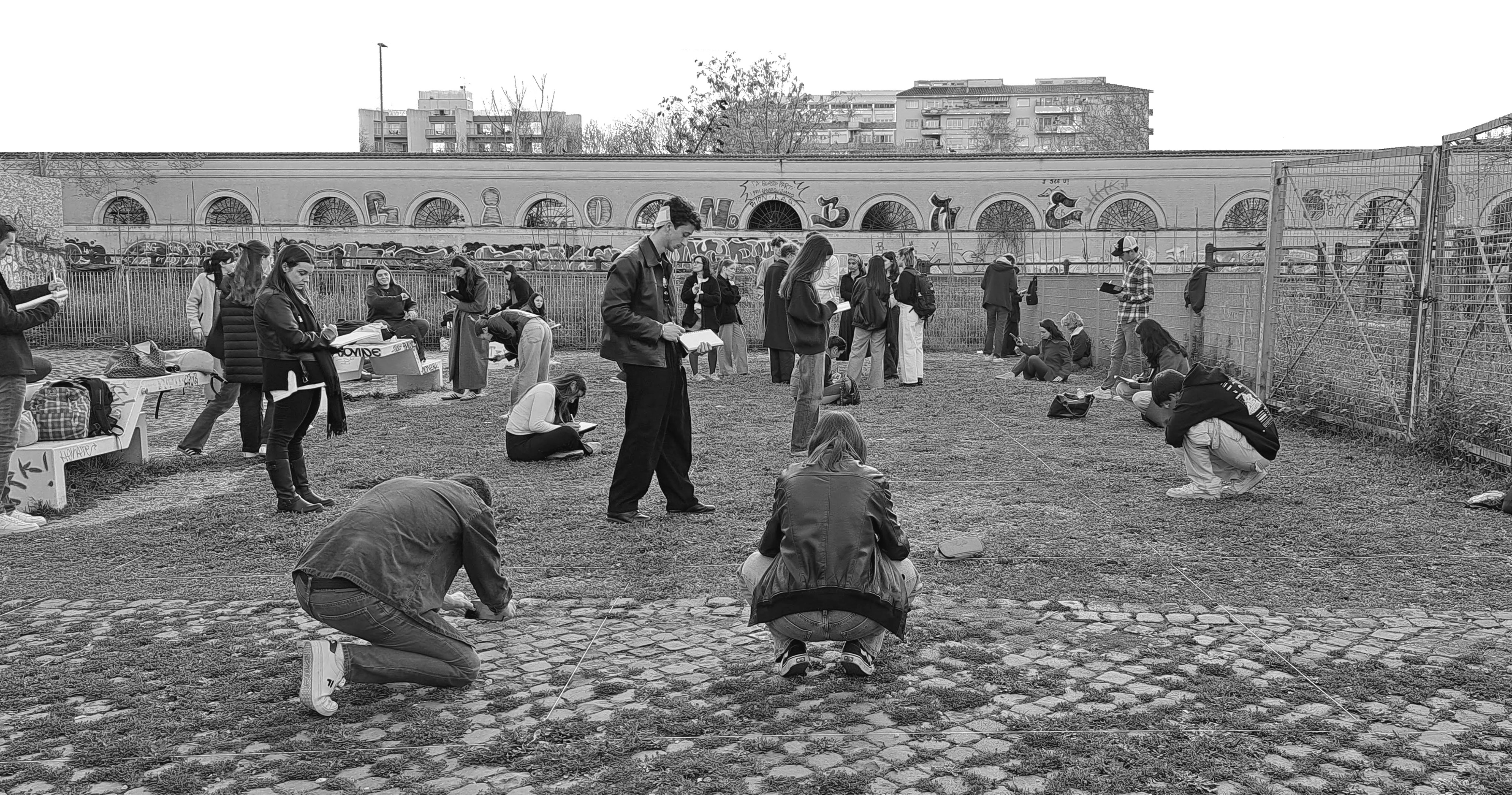
Plural Intelligence
Multiple courses
Roma Tre University
The Department of Architecture at Roma Tre University presents a selection of teaching experiences from its postgraduate programs, which share a common perspective on rethinking the concept of nature in contemporary landscape architecture: rather than viewing nature as a collection of non-human elements, we understand it as a platform of behaviours and interactions arising from diverse life forms, intentions, and intelligences.
Beyond any traditional binaries such as natural/artificial and human/non-human, we recognize nature as the gathering of distributed and collective intelligence, and we mean landscape architecture as a respectful engagement with several intelligences across scales and species. Key features of the presented teaching experiences include: a cognitive approach to identifying and understanding visible and invisible intelligence (e.g. atmospheric or microscopic phenomena); multiscale thinking to recognize that global complexity can be accessed through local, minute interactions; temporal sensitivity to observe and interpret non-human agency and the evolution of interactions over time; 1:1 scale interventions to actually reveal, amplify or trigger new landscape dynamics, akin to seismography; varied representational methods, such as drawings, models, photography and film not just for communication, but also as tools for thought and action; addressing landscape architecture with the intent of negotiation between dynamic relationships, rather than solving problems.
